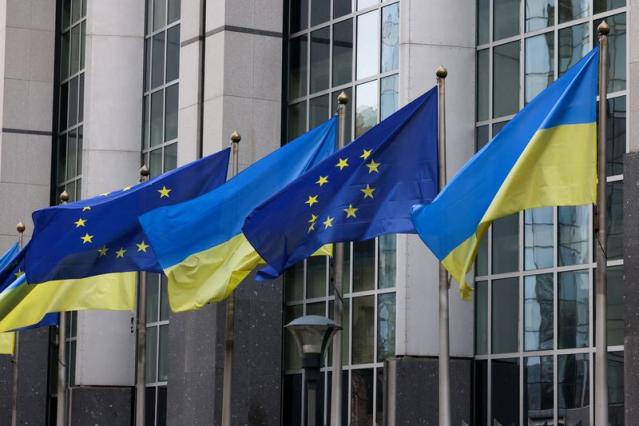The European Union has intensified its pressure on Russia with a new round of sanctions, targeting Moscow’s shadow fleet of liquefied natural gas (LNG) tankers and addressing mounting concerns about hybrid attacks. The measures, endorsed by EU foreign ministers in Luxembourg, aim to disrupt Russia’s energy operations and respond to various forms of aggression below the threshold of military action.

In a significant move to curtail Russia’s energy revenues, the EU will prohibit the reloading of Russian LNG in its territory for transshipment to third countries. This decision targets an estimated 4–6 billion cubic meters of Russian LNG that was shipped through EU ports to other destinations in the previous year. The sanctions will affect ship-to-ship and ship-to-shore transfers, as well as reloading operations, and include a ban on new investments in Russian LNG projects.
The EU’s action comes in response to suspicions that Russia operates a “ghost fleet” of up to 400 ships to evade existing sanctions and maintain its energy income to finance the ongoing war in Ukraine. By forcing Russia to use more costly routes for energy transportation, the EU aims to further constrain Moscow’s financial resources.

In addition to energy-related sanctions, the EU has expanded its list of targeted entities and individuals. New additions include companies in China, Turkey, and the United Arab Emirates accused of circumventing sanctions or providing sensitive equipment to Russia. Over 50 officials face asset freezes and travel bans, adding to the more than 1,700 individuals already listed by the EU, including Russian President Vladimir Putin and Foreign Minister Sergey Lavrov.
The sanctions package also addresses growing concerns about Russia’s hybrid attacks on European countries. Several EU foreign ministers emphasized the need for action against these “grey zone” activities, which are designed to destabilize Ukraine’s supporters without crossing the threshold into open military conflict.
Finnish Foreign Minister Elina Valtonen highlighted the “plethora of actions” Russia has undertaken against European countries, citing Finland’s recent closure of border crossings due to an alleged Kremlin-orchestrated migrant campaign. Lithuanian Foreign Minister Gabrielius Landsbergis called for a clearer message to Moscow, stating that escalation from Russia should be met with a firm response from the EU.

These concerns echo a NATO warning issued in May about Russian “hostile state activity” targeting several European countries, including the Czech Republic, Estonia, Germany, Latvia, Poland, and the UK. The alliance emphasized that these actions “constitute a threat to allied security.”
In a separate but related move, the EU imposed sanctions on individuals associated with cyber espionage groups, including the “Callisto group,” “Armageddon hacker,” and “Wizard Spider.” These groups are accused of conducting cyber operations against EU member states to steal sensitive defense and diplomatic data.
As the EU continues to tighten its sanctions regime against Russia, the focus on energy and hybrid threats reflects the evolving nature of the conflict. The measures targeting the LNG ghost fleet, in particular, demonstrate the EU’s commitment to undermining Russia’s ability to finance its war efforts through energy sales.
The effectiveness of these new sanctions and their impact on both Russia’s economy and the broader European energy market will be closely watched in the coming months. As tensions between the EU and Russia persist, the international community remains vigilant about the potential for further escalation and the ongoing challenges to European security.
AP



